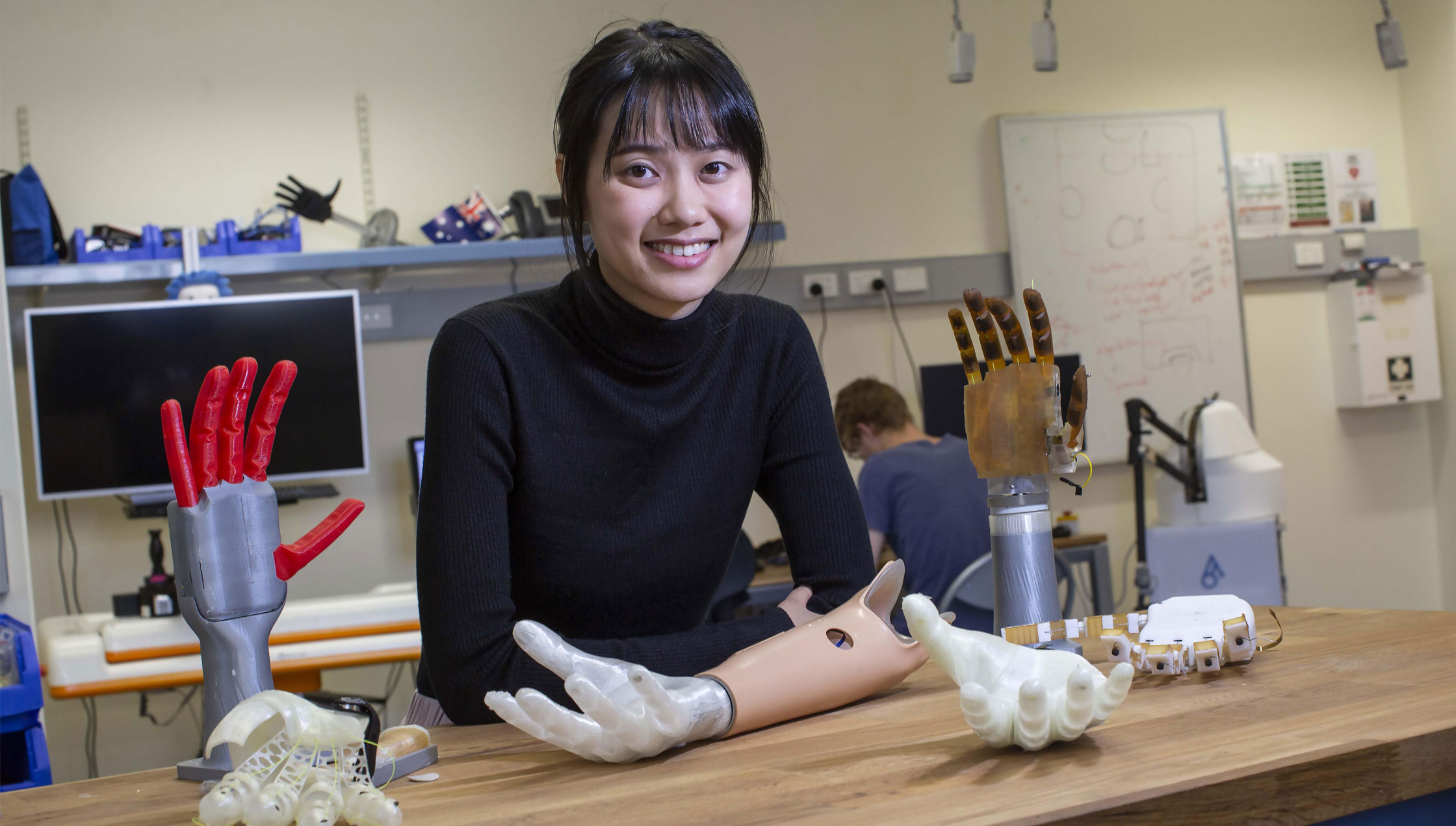Smart Steps
Every great journey begins with a single step. For Qianyang Chen, it began when her grandfather suffered a stroke and lost much of his mobility. She was determined to find an alternative to life in a wheelchair.

Fired by ingenuity and resourcefulness – and with the help of a prestigious scholarship – the 27-year-old University of Melbourne student is planning to develop a smart knee brace with the aim of giving mobility to patients with degenerative lower limb muscles due to ageing or disease.
Qianyang’s goal is to construct a prototype of a streamlined, powered device that will enable the patient to stand up from a seated position and walk independently at normal pace.
“It will be something like a suit you can wear, rather than a metal frame,” she explains. “And we’re also looking at making it very affordable.”
If successful, the project would have a hugely positive impact on Australians suffering physical struggle. According to figures released in 2015, reduced mobility due to degenerative neurological diseases or ageing deprived an estimated 3.4 million Australians – 14 per cent of the population – of their independence. The numbers continue to grow as the population ages, placing pressure on the healthcare sector.
To help build up her skills and expertise, Qianyang is working on an Assistance Exoskeleton Robotics project this year in collaboration with fellow Master of Engineering students. The project is a lower limb exoskeleton for gait assistance, hosted by the Robotics Lab in collaboration with the tech start-up Fourier Intelligence.
“The exoskeleton project has four teams of three to four people each,” adds Qianyang. “I am in the research team which has four engineering students – two mechatronics and two mechanical.
“This exoskeleton project will be a great learning opportunity for me. I will be able to build up my knowledge in a related area and get some useful experience to prepare me for the knee brace project. Plus, I am working with a team of really passionate and inspiring students. I feel that I can learn so much from them.”
Qianyang’s ambitious project could help her grandfather who, at 89, still lives in Shenzhen, a city that links Hong Kong to China’s mainland, but it also has the potential to support tens of thousands of people around the world. Her knee brace might also be used to support middle-agers with sports injuries, where surgery is not a viable option or is unsuccessful.
It helped my confidence to have the recognition from the University as well as the support from the donor.
The talented student’s journey in Australia has been marked by a series of fortunate and unfortunate events. If the low point was when her grandfather suffered his health setback, the pinnacle was receiving the Jack Wynhoven Scholarship, which is awarded to an engineering student in recognition of Driving Innovation and Entrepreneurship. The award has significantly eased Qianyang’s financial burden and allowed her to follow her dream.
Having recently met Jack, who graduated from the University with a Bachelor of Engineering (Civil) in 1964, Qianyang says she has been inspired by the man whose illustrious career as a consulting engineer has taken him across Australia, Canada and Switzerland. She says she is immensely grateful for the generosity of Jack and the Wynhoven family.
After her grandfather’s stroke, almost three years ago, Qianyang looked at all available alternatives to a wheelchair, including devices such as walking frames, mobility scooters and exoskeletons. She identified an unaddressed demand for an affordable, slim-built, powered device to provide walking assistance in a day-to-day context.
At the time, she was working as an actuarial analyst for a Sydney-based company and was enjoying her job. Searching for a solution to help her grandfather meant having to go back to university to study a Master of Engineering (Mechatronics). Although in her DNA – both her parents are retired engineers – Qianyang needed to study physics subjects online before she could enrol at the University of Melbourne in 2017.
“Sometimes, life surprises you,” she says of her decision to shift gears.
Initially, she successfully juggled part-time work with her full-time study, but as the demands of the coursework increased, she struggled financially. The scholarship rescued her – financially and emotionally.
“It helped my confidence to have the recognition from the University as well as the support from the donor,” she explains. “Dr Wynhoven and his family are wonderful people. He has been very encouraging and is looking forward to seeing what I come up with by the end of my degree.”